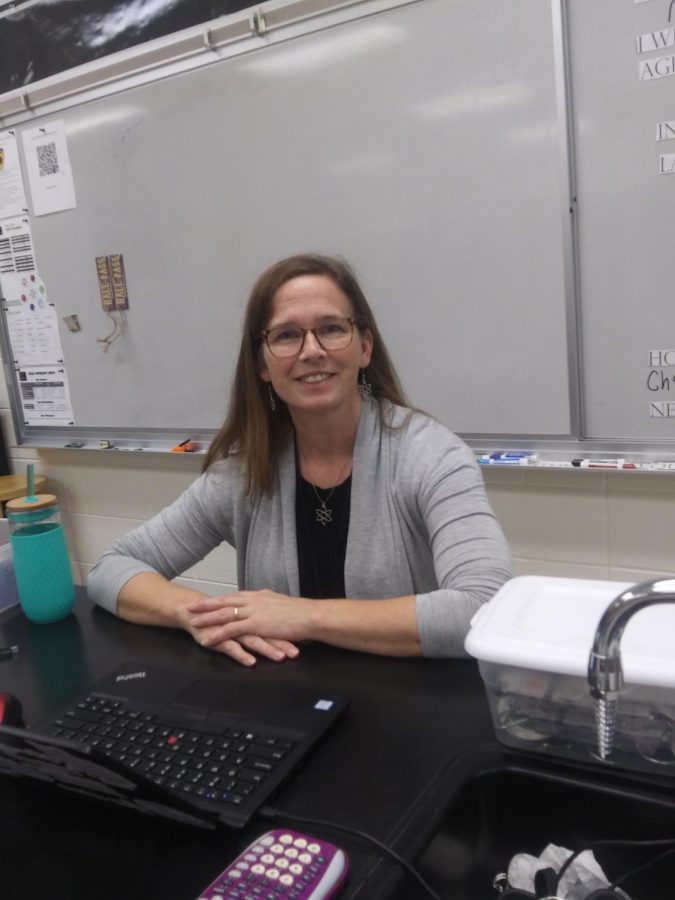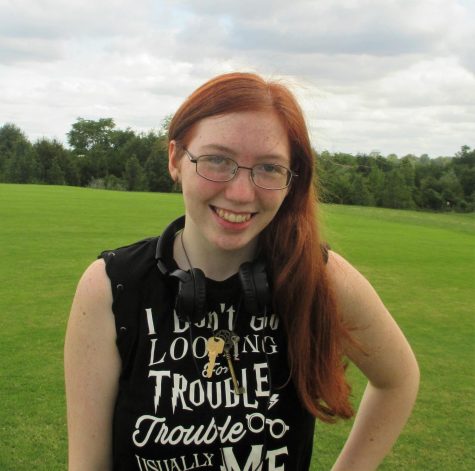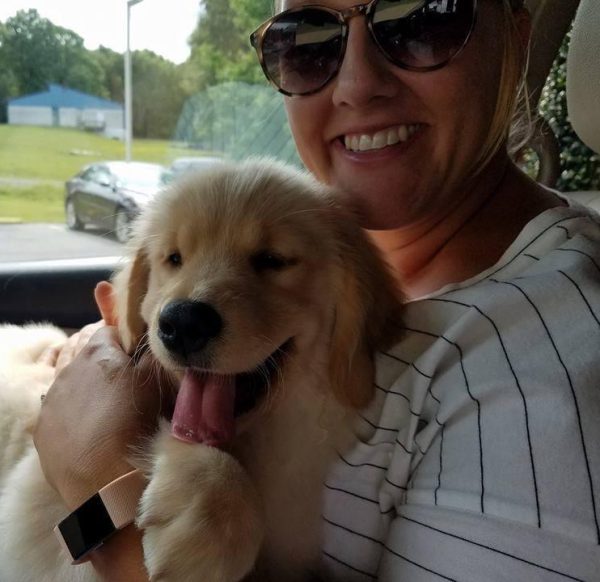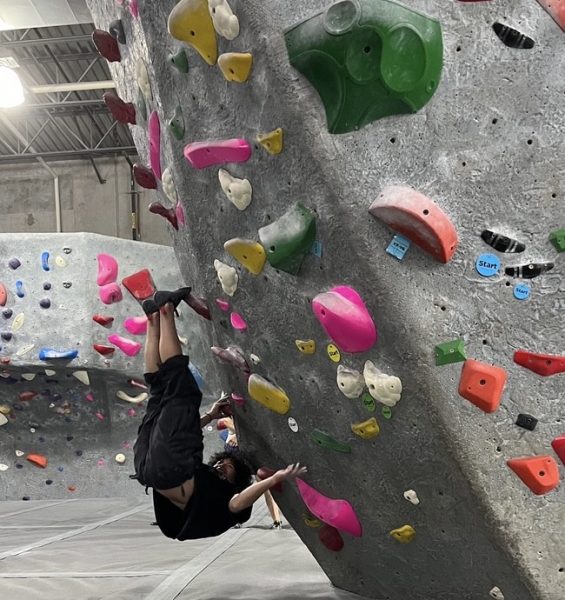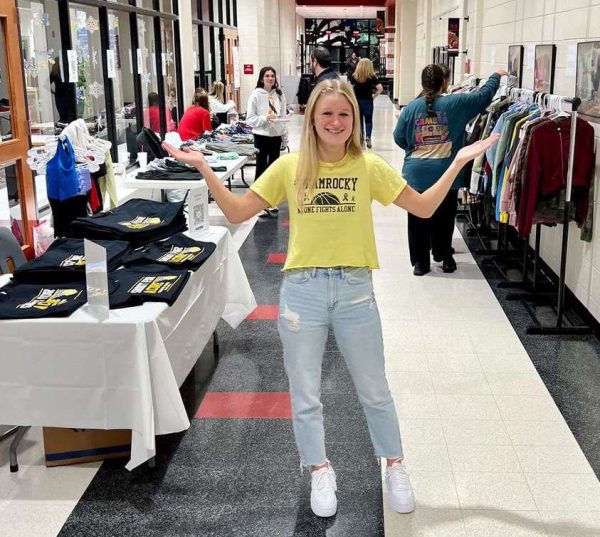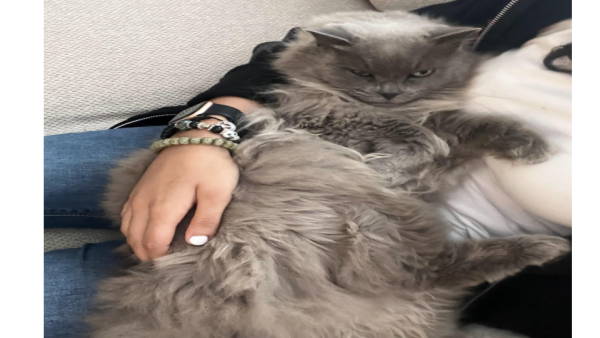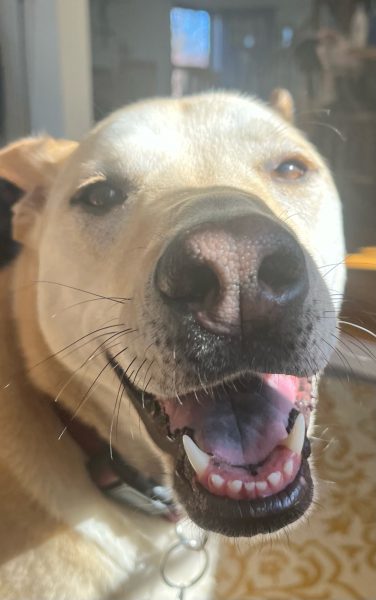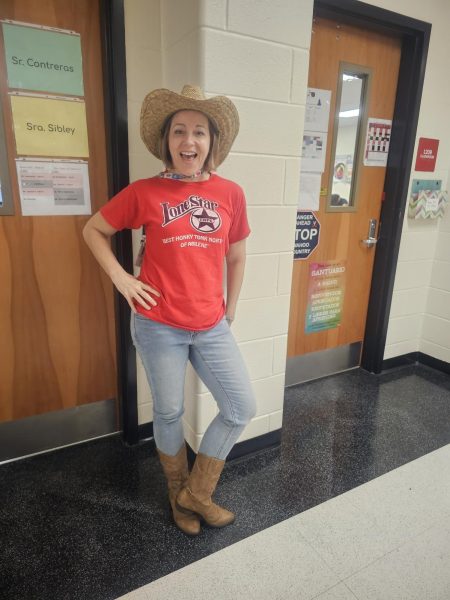The Science of Dr. Ratliff
Dr. Ratliff before her morning classes.
October 31, 2019
Science is an undeniable part of our universe. From the smallest of atoms to the largest of solar systems, science is all around us. We learn about different types of science such as biology, chemistry, and physics. Here at Heritage High School, we have some excellent science teachers. One of those teachers is Dr. Laura Ratliff, who teaches physics at different levels.
According to Dr. Ratliff, she’s always had a passion for science throughout her life. She always prefered it over writing like in some of her other classes.
“I liked my physics class in high school, mainly because I didn’t have to do a lot of reading and writing,” said Dr. Ratliff when asked about how it all began. “I chose it as a major without thinking very much.”
In college, she originally wanted to teach at a college level. You may be asking, “When did that change?” Dr. Ratliff provided some insight on that during her interview.
“I didn’t think I would do very well with high schoolers. I didn’t think I could manage them very well, but … then I finished grad school, and instead of going into a college job, I got a job with a national lab. I enjoyed it, and I worked there for 10 years, but I had kids, and it was tough being a mom and working long hours there, so I decided to stay home for a while. … Then I started tutoring and I realized teenagers are pretty cool, so I decided I’d give it a try.”
When asked about things outside science, Dr. Ratliff didn’t have much to say.
“I do crafts, I do a lot of yoga,” said Dr. Ratliff after a long pause.
According to Dr. Ratliff, she’s always had an affinity for physics. She even laughed at the idea of working with other sciences. However, she did have another passion in high school.
“The other thing, when I was in high school, I thought I wanted to was be an architect. People told me ‘Oh that’s really hard; that’s really competitive.’ I didn’t want to do that then, so I didn’t pursue it,” said Dr. Ratliff.
As the interview came to an end, Dr. Ratliff thought of some advice for students who wish to follow a career path in science.
“Take as much science classes as you can, and math. Math is important. Basically, just learn as much as you can. Find opportunities to work in labs if you can. Maybe shadow a scientist or study,” Dr. Ratliff advised.
Whether you’re a high school student or working in a lab, science is understood at many levels. It’s thanks to people like Dr. Ratliff that students are able to see science as a possible career in their future. Thank you for showing us what we can be.
